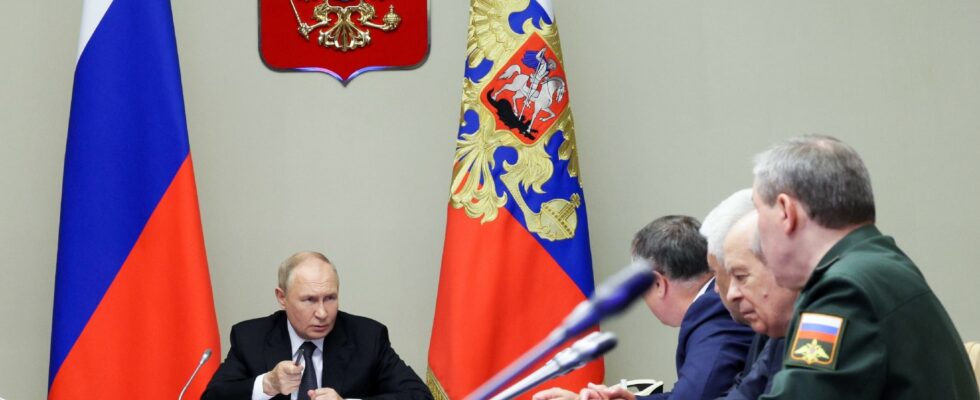This is the question that has been asked for a little over two weeks and the beginning of the Ukrainian operation in the Kursk region: how was the Kiev army able to make such a breakthrough on Russian soil in just a few days? All this while keeping this operation perfectly secret?
While the high efficiency of the Ukrainian forces and the unpreparedness of the Russian army are probably part of the answers, the Wall Street Journal revealed another element, far from negligible, on Wednesday, August 21. Just a few months ago, Colonel General Alexander Lapin, in charge of security in the Kursk province, decided to dissolve the council responsible for the protection and defense of this region.
The council brought together military officers with local and regional security officials to oversee the defense of the Kursk region, which borders Ukraine. But according to Alexander Lapin, also chief of staff of the Russian ground forces, the army alone had the forces and resources needed to protect the province. A misjudgment that proved to have serious consequences, as the Ukrainian breakthrough, starting on August 5, was rapid and so far uncontrolled by Russian forces.
A human and material shortage
It is of course impossible to say whether this advice could have actually prevented the Ukrainian incursion. On the human level first, the Russian forces had to organize their first line of defense with a total absence of soldiers seasoned for this kind of confrontation. A glaring example reflects this: the first Russian unit encountered by the Ukrainian army, the 488th Motorized Rifle Regiment, was almost exclusively composed of conscripts. That is to say, young Russian soldiers who had just started their military service, mobilized on Russian territory to compensate for the waves of departures to the Ukrainian front.
The situation was repeated in the vast majority of the first clashes in Kursk, with the major consequence being the taking of a hundred Russian prisoners by the Ukrainian army, the Moscow forces having surrendered very quickly without really putting up any resistance. But it was Alexander Lapin who decided to leave the security of the region to the Russian armed forces alone, thus preventing the rapid intervention of other Russian internal security units.
This was without mentioning the lack of military equipment. According to Konrad Muzyka, a military expert from the Polish company Rochan Consulting, WSJwhile the Russian army should have had nearly 120 armored vehicles, including tanks and armored personnel carriers, the Russian military forces had only between 10 and 20. With here too a colossal call for air due to the ever-increasing needs of the invasion of Ukraine, having completely stripped the Russian defense on its own soil.
A total disorganization of the response
But it is above all on the side of the ineffectiveness of the Russian response that this choice of Alexander Lapin seems to have consequences. In the absence of an organized body, the efforts deployed by Moscow to drive out the Ukrainian troops have so far been chaotic, with internal struggles between the different branches of the Russian defense – the armed forces, the security services (FSB), the border guards, or even the Chechen special forces battalion Akhmat – acting without real coordination.
The abolition of this defense council was also decided unilaterally by Alexander Lapin following his appointment to the security of Kursk last May. Enough to illustrate the shortcomings of the Russian military command and its disconnection from the realities on the ground. “The very vertical power established by Putin is currently going against Russian objectives on the front. As Russia plans everything from the top of its command, its capacity to respond to unexpected and rapid events is incredibly degraded, with no one taking the initiative on the ground anymore,” he thus asserts to the Wall Street Journal William Courtney, former American diplomat.
Colonel General Alexander Lapin embodies all the fractures within the Russian army. First decorated as a Hero of the Russian Federation in July 2022, he was then the subject of extremely virulent criticism from Ramzan Kadyrov following setbacks and significant retreats on the front, with the Chechen leader inviting him to go to the front barefoot with a light machine gun to “wipe away his shame with blood”. If the Kremlin had kept its confidence in Lapin by appointing him chief of staff of the land forces and adding to him the responsibility for the security of the Kursk region, it is far from guaranteed that this will last much longer.
